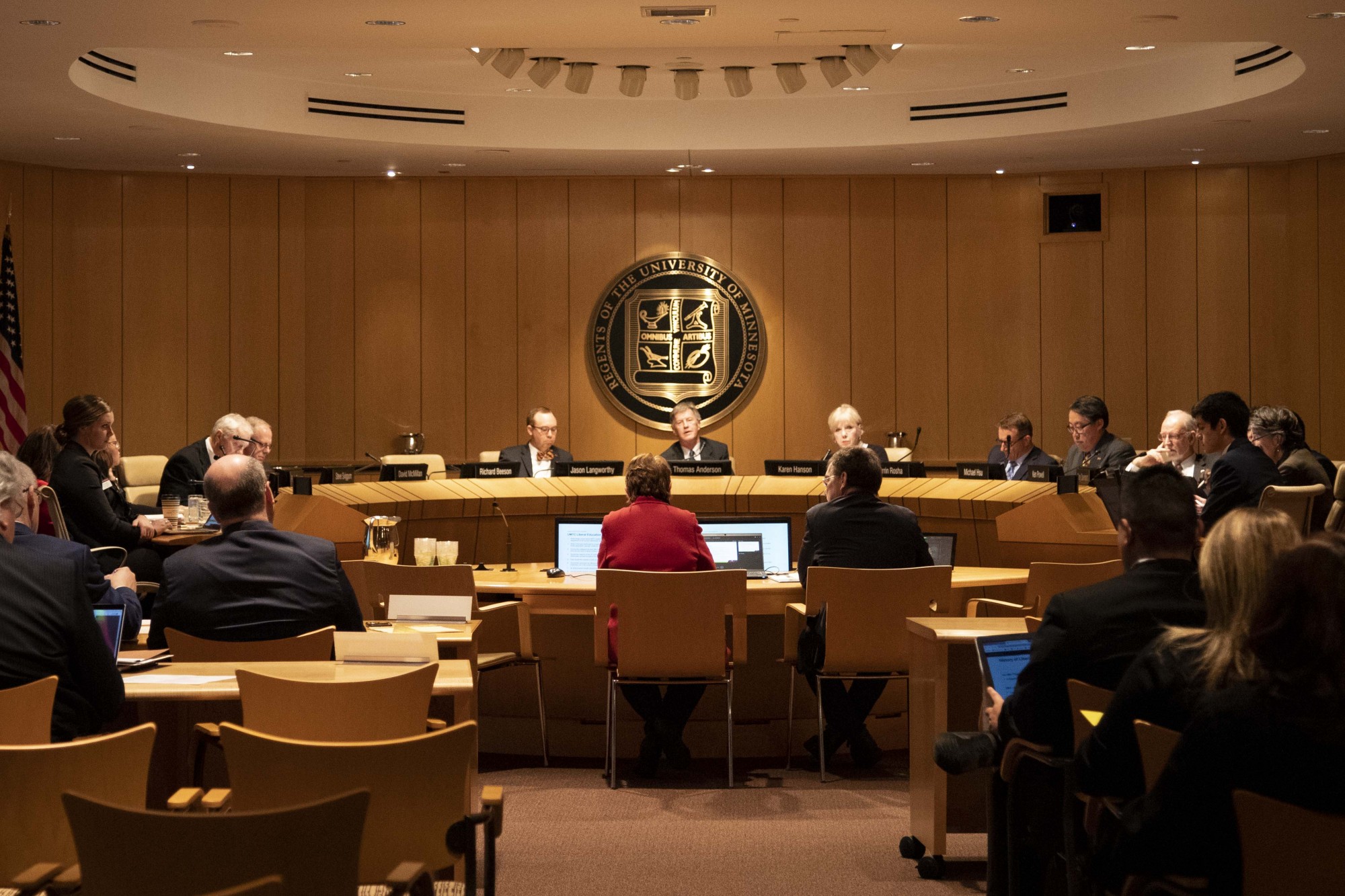Student representatives brought concerns and priorities to the University of Minnesota Board of Regents in a virtual meeting Friday, such as hiring diverse faculty and staff and renaming campus buildings, as well as ethical concerns with the ongoing regent election.
The board also discussed the University’s future response to the COVID-19 pandemic and plans for developing the Rochester campus.
Student representative priorities
The elected student representatives to the board shared feedback with the regents on topics they would like the administration to address. Among these were requests to hire more diverse faculty and staff and for the University to declare racism as a public health crisis.
The students also requested that regents revisit the discussion about renaming campus buildings due to their namesakes’ racist history, including Coffman Union. This topic was highly debated in 2019 when the board voted against renaming four buildings on the Twin Cities campus.
Jael Kerandi, the chair of the student representatives to the board, and vice chair Abdulla Ali also proposed the board begin an audit process to evaluate how much the board considers the student body when making decisions.
“The frequency of engagement with the student representatives is simply not enough. While the student representatives appreciate the role and opportunity we have been given, for the wealth of students represented, we would like to see more parallel engagement,” Kerandi said at the meeting.
Regents election concerns
Kerandi raised concerns about several board members’ financial contributions to the Maroon and Gold Political Action Committee, an organization working to elect certain regent candidates to the board by lobbying the Minnesota State Legislature.
The ongoing regent elections process is expected to conclude when the legislature fills four open seats on the Board in coming weeks.
Because the University is not supposed to be involved in the regent elections, the student representatives said they were concerned that regents were attempting to influence the outcome by donating to the PAC.
“The process itself is far from perfect and, in fact, holds many flaws and barriers. One of the things that provides legitimacy and integrity to this process is its independence from the institution,” Kerandi said at the meeting. “It is therefore imperative that regent candidates be independent and not beholden to any special interest of this group. Unfortunately, this is not what has happened.”
Kerandi specifically named Regent Kendall Powell, Regent David McMillan, Regent Janie Mayeron and Regent Richard Beeson as donors to the PAC.
“Current members to the Board of Regents do not and should not have any role in selecting potential colleagues,” Kerandi said. “The existing of these financial relationships between members of this body and the PAC undermines Minnesota’s constitutional sovereignty.”
Kerandi, a former Minnesota Student Association president, asked regents to “do better” and end their contributions to the committee.
Powell did not directly respond to Kerandi’s statement and instead moved on to the rest of the meeting.
University’s COVID-19 response
At the meeting, Dr. Michael Osterholm, an infectious disease expert and director of the University’s Center for Infectious Disease Research and Policy, updated the board on the ongoing COVID-19 pandemic and the continued impact on the University.
Osterholm pointed toward variant strains in the disease as a concern for the University. As COVID-19 variants tend to be more contagious, they can cause more severe illness and can evade vaccines in some scenarios.
Although the number of new COVID-19 cases is declining and vaccine distribution is increasing in Minnesota, Osterholm described the current situation as the “eye of the hurricane,” meaning that cases may spike again due to the variant strains.
“The case numbers right now would give you the sense that everything is fine,” Osterholm said at the meeting.
Vaccine distribution is not the only challenge, Osterholm said. Another large concern is fighting misinformation to encourage people to get the vaccine.
“If they don’t [get the vaccine], that’s going to be a dramatic challenge for us,” he said.
Osterholm is predicting that college students will be able to receive vaccines by May.
The next board meeting is scheduled for May 13 and 14.













